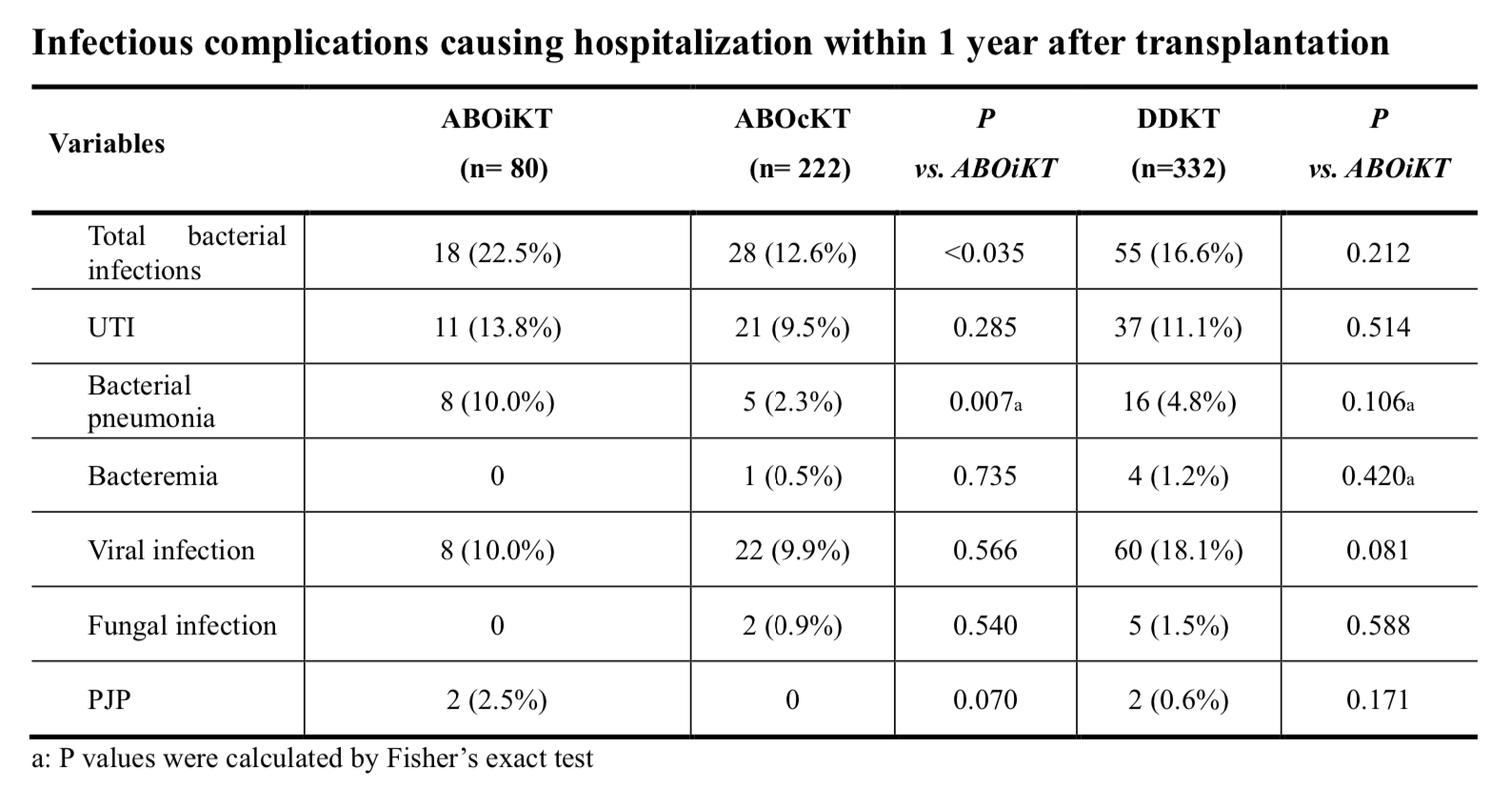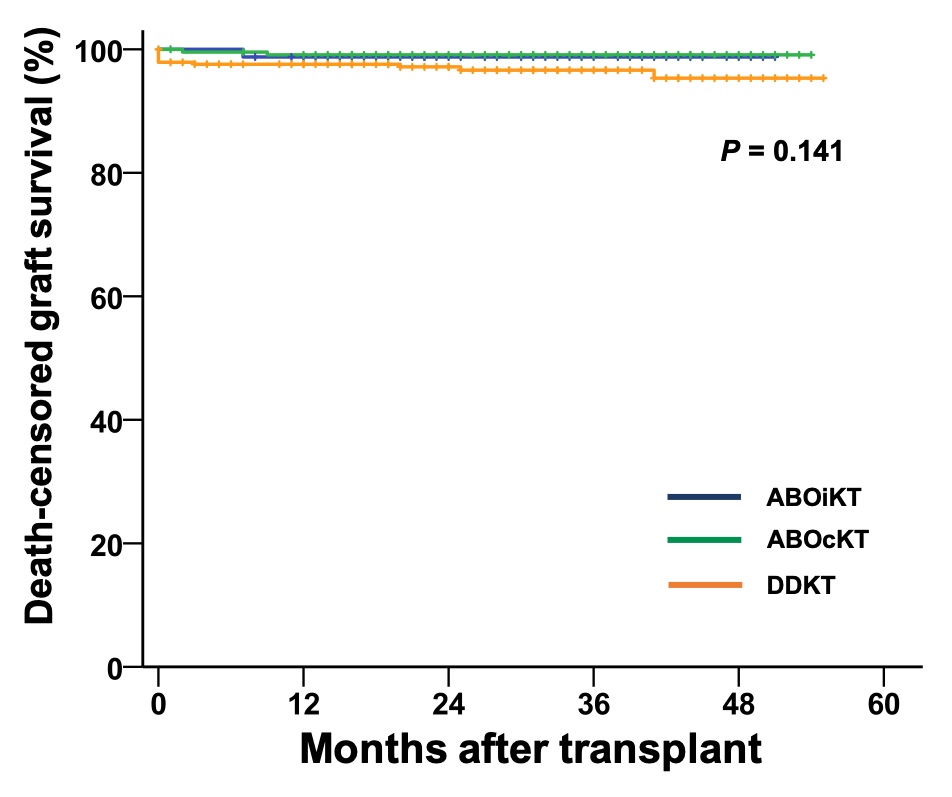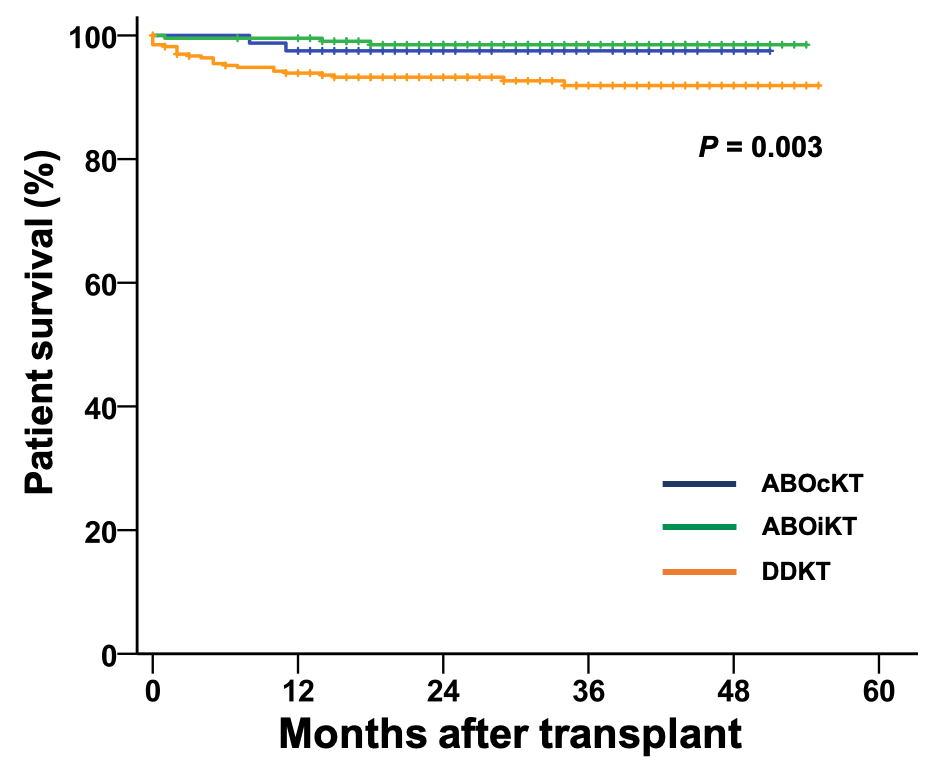Outcome of ABO Incompatible Kidney Transplantation in the Elderly: A National Cohort Study Using Korean Organ Transplantation Registry Data
1Wonju Severance Christian Hospital, Wonju, Korea, Republic of, 2Severance Hospital, Seoul, Korea, Republic of
Meeting: 2020 American Transplant Congress
Abstract number: B-025
Keywords: Elderly patients, Kidney transplantation
Session Information
Session Name: Poster Session B: Kidney Living Donor: Other
Session Type: Poster Session
Date: Saturday, May 30, 2020
Session Time: 3:15pm-4:00pm
 Presentation Time: 3:30pm-4:00pm
Presentation Time: 3:30pm-4:00pm
Location: Virtual
*Purpose: Outcome of ABO incompatible kidney transplantation (ABOiKT) in the elderly is not well-established yet. The purpose of this study is to compare post transplant outcome among ABOiKT, ABO compatible KT (ABOcKT) and deceased donor KT (DDKT) in elderly patients.
*Methods: From Korean Organ Transplantation Registry data base, 634 elderly patients (more than 60 years old) who received KT between October 2014 and December 2017 were selected. We compared clinical outcomes among three groups; ABOiKT (n=80), ABO compatible KT (ABOcKT; n=222) and deceased donor KT (DDKT; n=332).
*Results: During immediate postoperative period, surgical complications were similar among three groups. Total bacterial infections which needed hospitalization were higher in ABOiKT than ABOcKT. Viral or fungal infections were similar among three groups. The number of event biopsy and the incidence of biopsy-proven acute rejection within 1 year after KT were similar among three groups. Estimated GFR of ABOiKT was significantly lower than ABOcKT but higher than DDKT at 6 month after KT. (61.7±15.1 vs. 67.0±20.1 vs. 57.2±23.1, P=0.016 for ABOiKT vs. ABOcKT; P=0.049 for ABOiKT vs. DDKT). During 28 months of mean follow up period, death censored graft survival was similar among three groups (P=0.141). However, patient survival of ABOiKT was similar with ABOcKT but higher than DDKT (P=0.003)
*Conclusions: In spite of higher infectious complication, ABOiKT showed equal graft and patient survival with ABOcKT and showed higher patient survival than DDKT in the elderly. ABOiKT could be recommended rather than waiting DDKT in elderly patients who has no other living donor option.
To cite this abstract in AMA style:
Kim D, Lee J, Kim B, Kim M, Kim Y, Huh K, Choi H. Outcome of ABO Incompatible Kidney Transplantation in the Elderly: A National Cohort Study Using Korean Organ Transplantation Registry Data [abstract]. Am J Transplant. 2020; 20 (suppl 3). https://atcmeetingabstracts.com/abstract/outcome-of-abo-incompatible-kidney-transplantation-in-the-elderly-a-national-cohort-study-using-korean-organ-transplantation-registry-data/. Accessed February 16, 2026.« Back to 2020 American Transplant Congress



